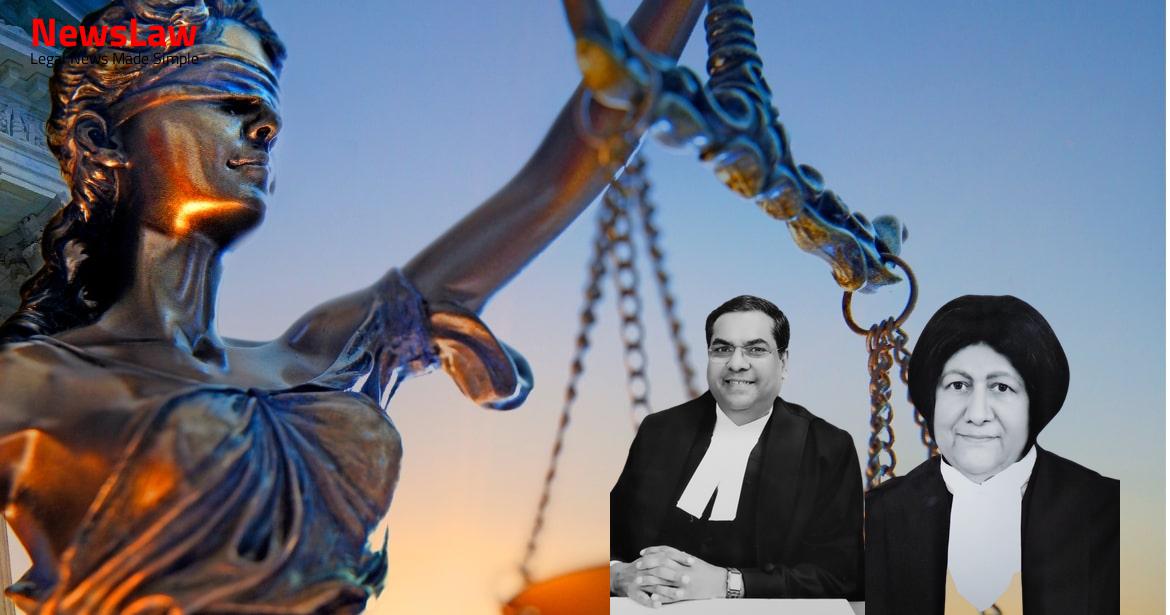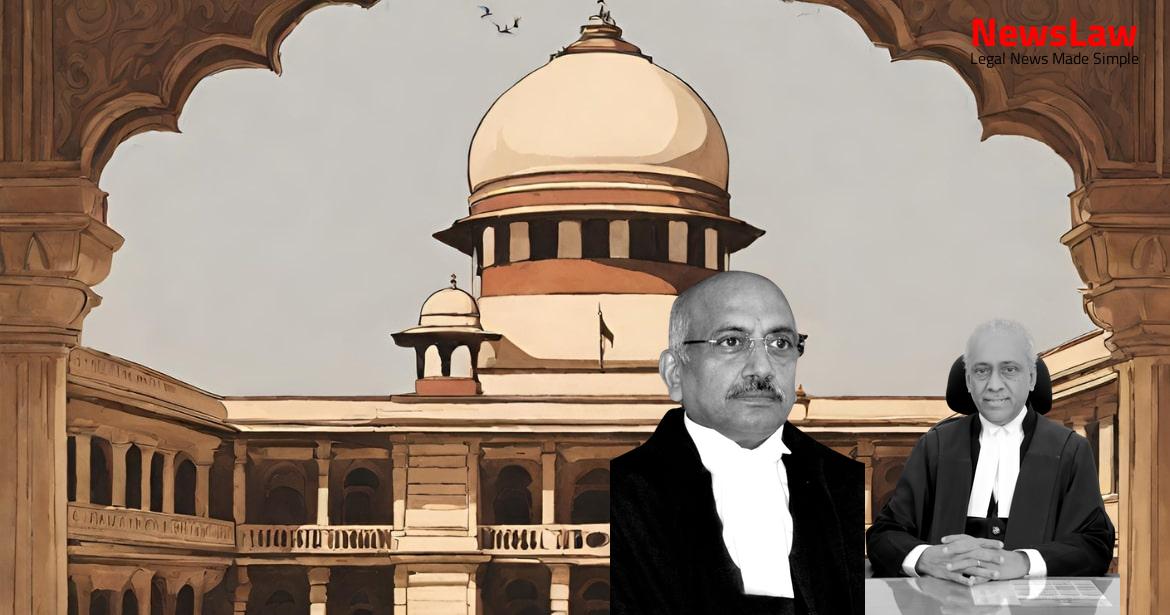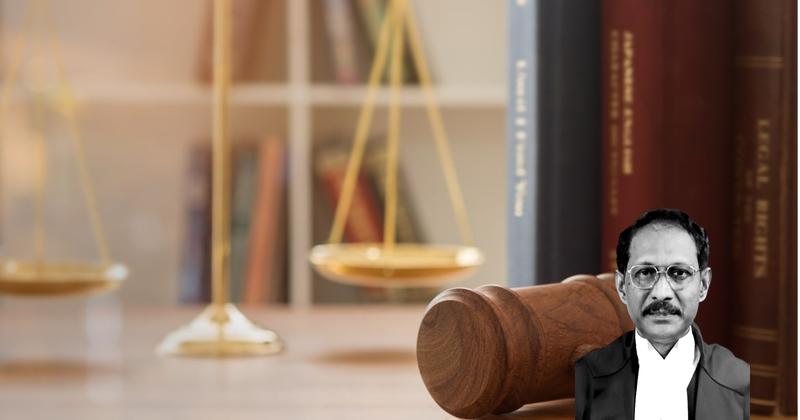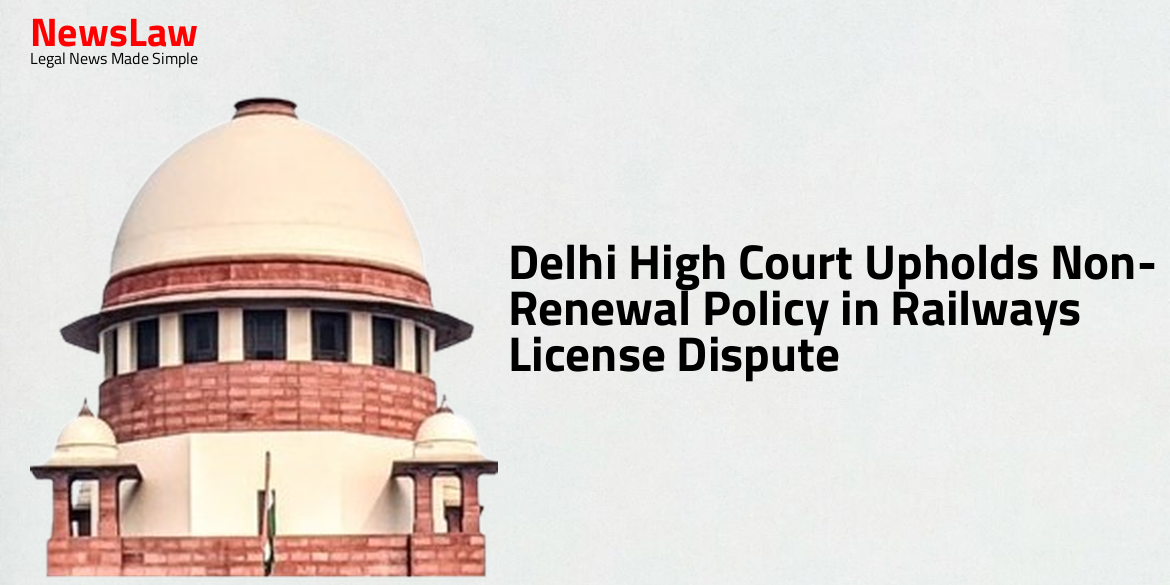Delve into a case where the court provides in-depth legal analysis on the application of limitation and continuing wrong in the context of the Insolvency and Bankruptcy Code. The court’s examination of debt acknowledgment, application timeline, and relevance of the Limitation Act sheds light on crucial legal aspects in debt recovery cases.
Facts
- The Appellant filed an original application under the Recovery of Debts due to Banks and Financial Institutions Act, 1993 before the Debt Recovery Tribunal (DRT) for recovery of dues from the Corporate Debtor.
- A pari pasu charge was created on the properties of the Corporate Debtor in favor of the Assignor Bank and Corporation Bank.
- The Corporate Debtor failed to repay the loan obtained from the Assignor Bank, leading to a recovery certificate being issued by DRT, Bangalore.
- The Assignor Bank assigned its dues from the Corporate Debtor to the Appellant through an agreement.
- An application filed by the Appellant under Section 7 of the IBC was found to be barred by limitation by the NCLAT.
- The Appellant challenged the NCLT’s rejection of their application under Section 7 of the IBC by filing an appeal before the NCLAT.
Also Read: Court’s Jurisdiction in Re-appraising Arbitrator’s Findings
Analysis
- The Corporate Debtor offered a one-time settlement which was not accepted by the Appellant.
- The Appellant’s application under Section 7 of the IBC included details of the financial debt claimed with supporting documents.
- The Corporate Debtor did not acknowledge the debt after a settlement in 2001, raising doubts regarding the claimed amount.
- The judgment, recovery certificate, and order from the DRT were relied upon by the Appellant to support their claim.
- The statements made in writing for an acknowledgment must imply an intent to admit a present liability.
- The application under Section 7 of the IBC by the Appellant was declared time-barred by the NCLAT due to limitations.
- The Balance Sheet and a letter from the Corporate Debtor were not considered valid acknowledgments of liability for the debt claimed.
- The right to sue accrues when a default occurs, with limitations starting from the date of default.
- Section 23 of the Limitation Act refers to a continuing wrong, not a continuing right.
- The IBC is not meant to replace a recovery forum, as stated in Mobilox Innovations Private Limited v. Kirusa Software Private Limited.
- In B.K. Educational Services Private Limited v. Parag Gupta and Associates, the court found an application under Section 7 of the IBC to be time-barred due to the loan account being declared an NPA in 1999.
- Vashdeo R. Bhojwani case rejected the notion that default was a continuing wrong under Section 23 of the Limitation Act.
- Acknowledgment under Section 19 renews debt but does not create a new right of action.
- The IBC application filed in the case was nearly 6 years after the amended Recovery Certificate was issued.
- In Transmission Corporation of Andhra Pradesh Limited v. Equipment Conductors 14 and Cables Limited, the court reiterated that the IBC is not a substitute for a recovery forum.
- The judgment and order of the NCLAT were upheld by the Court as there was no infirmity in them.
- A wrongful act that causes continuing injury constitutes a continuing wrong.
Also Read: Contrary Directions in Issuance of Letter of Intent
Decision
- The appellant has offered Rs. 65 Lakhs in full and final settlement of the claim.
- The request is made to accept the offer for Rs. 65 Lakhs to close the case.
- The appeal is dismissed.
Also Read: Application for Stay in Civil Suit Rejected: Court’s Legal Analysis
Case Title: M/S RELIANCE ASSET RECONSTRUCTION COMPANY LTD. Vs. M/S HOTEL POONJA INTERNATIONAL PVT. LTD. (2021 INSC 35)
Case Number: C.A. No.-004221 / 2020



